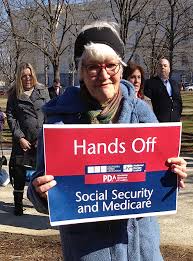 “A majority of employees are happy with the retirement plans their employers provide, but they are increasingly worried about factors that could negatively affect their years in retirement,” writes Rebecca Moore in an informative planadviser.com piece headlined Employees Increasingly Worried About Health Care in Retirement.” Her article continues:
“A majority of employees are happy with the retirement plans their employers provide, but they are increasingly worried about factors that could negatively affect their years in retirement,” writes Rebecca Moore in an informative planadviser.com piece headlined Employees Increasingly Worried About Health Care in Retirement.” Her article continues:
“Mercer’s latest data from the Inside Employees’ Minds Survey, conducted among more than 3,000 U.S. workers, shows employees are worried about pension plan cuts and freezes, market volatility and potential changes to Social Security. However, the survey shows a growing concern about health care expenses in retirement.
“Sixty-one percent of survey respondents say retirement is their No. 1 savings objective, while 40% say it’s paying down debt, and 32% cite saving for health care expenses in retirement. But, saving for health care expenses in retirement was the fastest-growing objective, up from 24% in 2010.
“Twenty-five percent say their biggest financial worry is monthly expenses—big enough to keep them up at night—and 19% said the same about retirement savings. However, worry about saving for retirement increases in step with respondent age; 28% of those ages 50 to 64 say it is their biggest financial worry, as do 29% of those 65 and older.
“Employees overwhelmingly say they, and not their employers or the government, are primarily responsible for providing adequate and secure income in retirement (69%) and providing for health care coverage in retirement (50%). Still, retirement plan and health benefits were the second and third most valued elements of their employers’ value proposition, behind base pay.
“The survey finds a shift in expectations for retirement. Compared with two years ago, fewer employees believe they will have to delay retirement (43% in 2013 vs. 35% in 2015), work at least part-time in retirement (55% vs. 39%), or reduce their standard of living (40% vs. 31%). However, fewer also believe that they will have enough money to pay for health care 35% in 2013 vs. 23% in 2015).”
